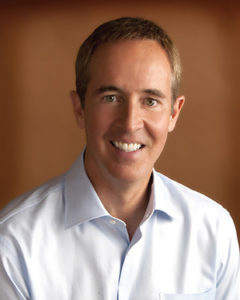The other war on Christmas — not the one over saying “Happy Holidays” instead of “Merry Christmas” — broke into a skirmish after a well-known evangelical preacher suggested he doesn’t have a problem with people who doubt the Virgin Birth.
Andy Stanley, founder of North Point Ministries, a network of six congregations across the Atlanta metropolitan area attended by 30,000 worshippers a week, said in a message Dec. 3 that one of the challenging things about Christmas is the “unbelievable” nature of stories in the Bible describing Jesus’ miraculous conception.
 “A lot of people don’t believe it, and I understand that,” Stanley said. “Maybe the thought is they had to come up with some kind of myth about the birth of Jesus to give him street cred later on. Maybe that’s where that came from.”
“A lot of people don’t believe it, and I understand that,” Stanley said. “Maybe the thought is they had to come up with some kind of myth about the birth of Jesus to give him street cred later on. Maybe that’s where that came from.”
Stanley, the son of former Southern Baptist Convention president and longtime pastor of First Baptist Church of Atlanta pastor Charles Stanley, called it “interesting” that only two of the four Gospels mention the Virgin Birth.
“Matthew gives us a version of the birth of Christ,” he said. “Luke does, but Mark and John, they don’t even mention it. A lot has been made about that.”
Stanley said he is less concerned about the Virgin Birth than with the Resurrection.
“If somebody can predict their own death and their own resurrection, I’m not all that concerned about how they got into the world, because the whole resurrection thing is so amazing,” he said.
“Christianity doesn’t hinge on the truth or even the stories around the birth of Jesus,” Stanley said. “It really hinges on the resurrection of Jesus.”
Albert Mohler, president of Southern Baptist Theological Seminary in Louisville, Ky., took exception to Stanley’s view in a Dec. 16 podcast describing the Bible stories about Christ’s incarnation as “the central truth claim of Christmas.”
“Just in recent days, one Christian leader was quoted as saying that if Jesus predicted his death and then was raised from the dead, it doesn’t matter how he came into the world,” Mohler said. “But the Bible insists it really does matter and the answer given from Scripture very clear in the gospel of Matthew and in the gospel of Luke is that Jesus was born to a virgin.”
Mohler said attacks on the Virgin Birth became popular in the aftermath of the Enlightenment in the form of attempts “to harmonize the anti-supernaturalism of the modern mind with the church’s historic teaching about Christ.”
“The great question of liberal theology has been to invent a Jesus who was stripped of all supernatural power, deity, status and authority,” Mohler said. “And in order to do that they have to begin by denying what the Bible so clearly teaches in terms of the Virgin Birth.”
Mohler said doubters about the Virgin Birth go back even further, quoting Augustine’s rebuttal of contemporaries in the late 4th and early 5th centuries embarrassed by the Incarnation, “the more impossible the virgin birth of a human being appears to them, the more divine it appears to us.”
“Then, as now, the issue comes down to the truth and authority of Scripture to reveal Christ,” Mohler said. “And that’s what the Bible does. It reveals Christ and it reveals Christ to have been conceived by the Holy Ghost, born of a virgin, born in Bethlehem as predicted by the prophets, and born in order to save sinners.”
A 2014 study by the Pew Research Center found that nearly three-quarters of U.S. adults (73 percent) said they believe that Jesus Christ was born to a virgin. One-in-five said they do not believe in the Virgin Birth, and 6 percent said they don’t know or declined to answer the question.
The Gospel of Matthew presents Christ’s miraculous conception as prophetic fulfillment of Isaiah 7:14: “Behold, a virgin shall conceive and bear a son, and his name shall be called Emmanuel.” Some modern Bible translations say a more accurate rendering of the Hebrew word used by Isaiah is “young woman.”
Luke’s gospel introduces Mary as “a virgin betrothed” to man named Joseph. Confronted by an angel foretelling she would conceive and bear a son, she initially appears doubtful, asking: “How shall this be, since I have no husband?” (Revised Standard Version).
The angel responds in Luke 1:35, as translated by the New International Version: “The Holy Spirit will come on you, and the power of the Most High will overshadow you. So the holy one to be born will be called the Son of God.”
The Virgin Birth of Christ was a cornerstone in the fundamentalist/modernist conflict among Protestants early in the 20th century. Roman Catholic teaching goes a step further, affirming not only the virginal conception but Mary’s “immaculate conception,” a miraculous immunity from original sin officially pronounced by Pope Pius IX in 1854.
